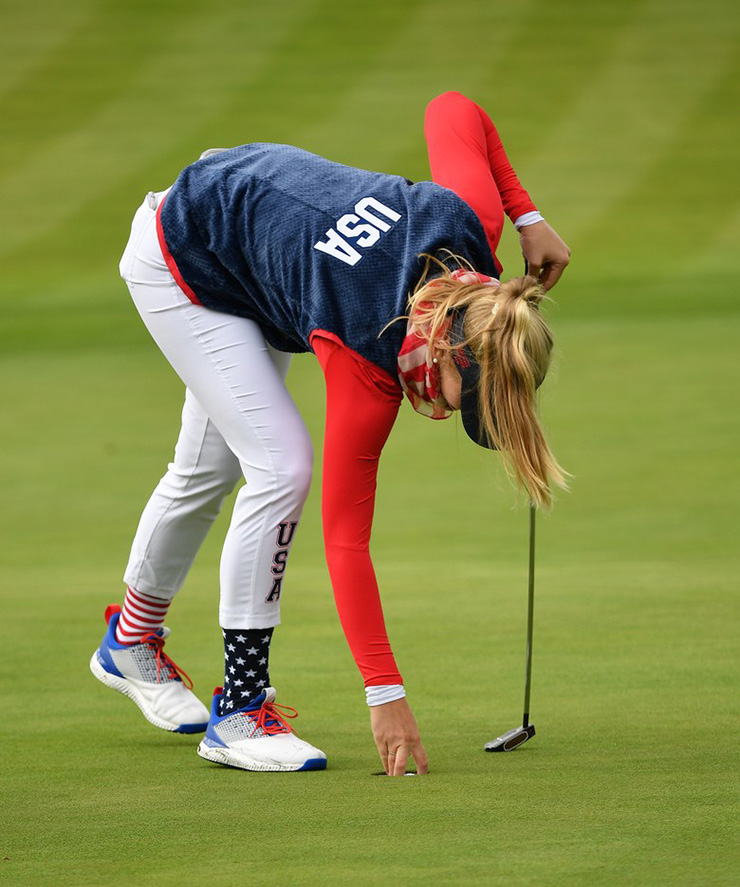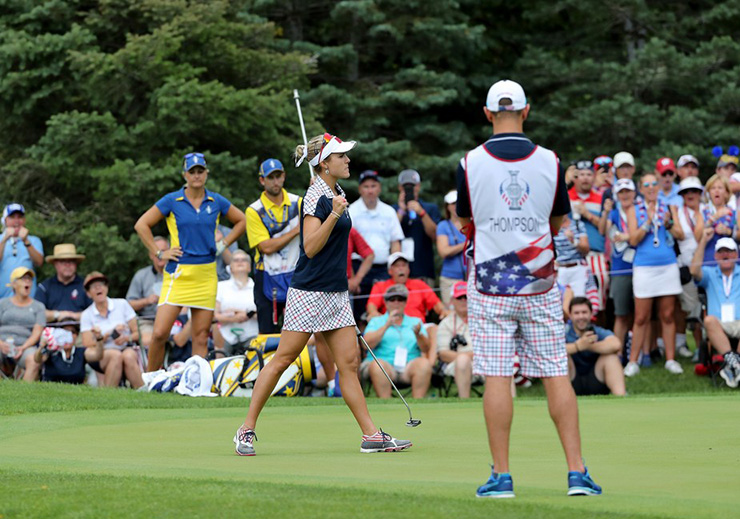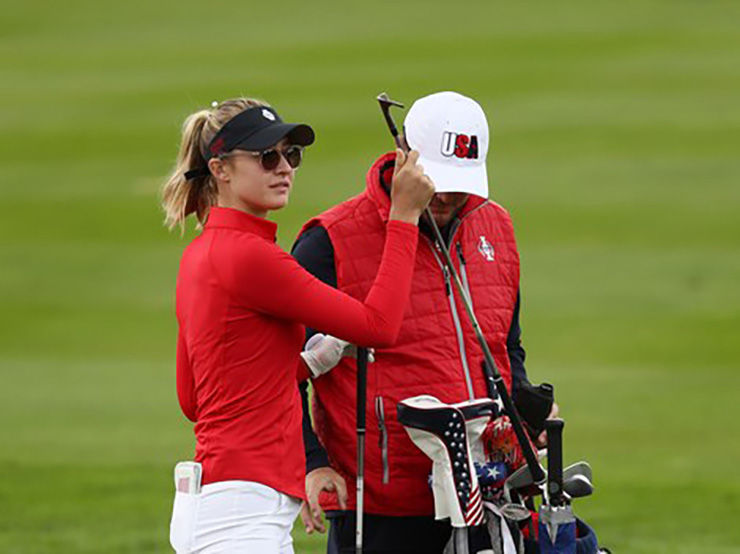By Keely Levins
To achieve this week’s goal at Gleneagles of winning a third straight Solheim Cup, the United States team must handle the pressure of playing on the road. And it will have to do that with a roster not as familiar with the perils of international team match-play compared to past years.
With Ally McDonald replacing an injured Stacy Lewis on Tuesday in the American lineup, captain Juli Inkster now has six golfers on her 12-player squad who are playing in their first Solheim Cup. McDonald joins Nelly Korda, Megan Khang, Marina Alex, Brittany Altomare and Annie Park as newcomers. It’s the largest group of rookies for an American team since the inaugural event in 1990. In 1992 (when Inkster played her first Solheim Cup) and 2002, Team USA has had five rookies.

The patriotic socks and footwear of Jessica Korda of Team USA during a practice round prior to the start of the Solheim Cup. (Photo by Stuart Franklin/Getty Images)
In addition, three of the six “veterans” on the U.S. team (Danielle Kang, Jessica Korda and Angel Yin) have only competed in the Solheim Cup when it’s been played stateside. Although not technically rookies, they’re new to a Solheim Cup in Europe, where the majority of the crowds won’t be rooting for them. Since Solheim Cups draw the biggest crowds in women’s golf, that matters.
That leaves three players—Lexi Thompson, Lizette Salas and Morgan Pressel—who have played against Europe, in Europe. Thompson and Salas are playing in their fourth Solheim Cup, and Pressel is playing in her sixth.

David Cannon
How Inkster plans to approach setting up her pairings in foursomes and four-balls becomes a big storyline heading into the three-day competition. It’s common for captains to pair rookies with veterans to help ease nerves and have a steady voice for advice. Yet Inkster won’t have that luxury.
“We’re not doing a veteran with a rookie. I’m going to send a couple of rookies out there together,” Inkster said. “They’ve got to grow up sometime. Everybody’s a rookie once. And I just happen to have six of them. So we’re just going to throw them out there.”
Some dynamic Team USA pairings are already broken up by the lack of seniority. Lexi Thompson and Cristie Kerr, the most successful U.S. pairing in Solheim Cup history with a record as a team is 4-0-2, aren’t going to be playing together because Kerr did not qualify for the team. Thompson, all of 24 but already having played in three Solheim Cups, will have to take on more of a leadership role.
To her credit, Inkster doesn’t appear to be worried about the rookie factor. “I’m really not changing anything,” she said. “For two years they’ve played well and they’ve made the team. They deserve to be out there. I’m gonna put them out there and see what they do. They have the right to play, and I’m going to play them.”
Inkster went as far as saying that this might be the ideal situation for some of America’s younger players to get their first Solheim Cup experience.
“I think if you’re a rookie, it’s a lot easier to play away your first Solheim because you’re really not expected to win and you can go out there and play a little looser,” Inkster said. “You don’t have the U.S.A. crowd pumping you up, and you just rely a lot on your teammates and your team. I think it’s easier to bond over here; you don’t have a lot of outside distractions.”
There isn’t a consistent precedent for what can happen when the U.S. team is rookie-heavy. Inkster knows firsthand that it can go poorly: In 1992, the Americans lost, 11½-6½. But in 2002, they won 15½-12½. In truth, the history Inkster will be relying on is more personal. This is her third straight Solheim Cup as U.S. captain, and so far she’s undefeated.









